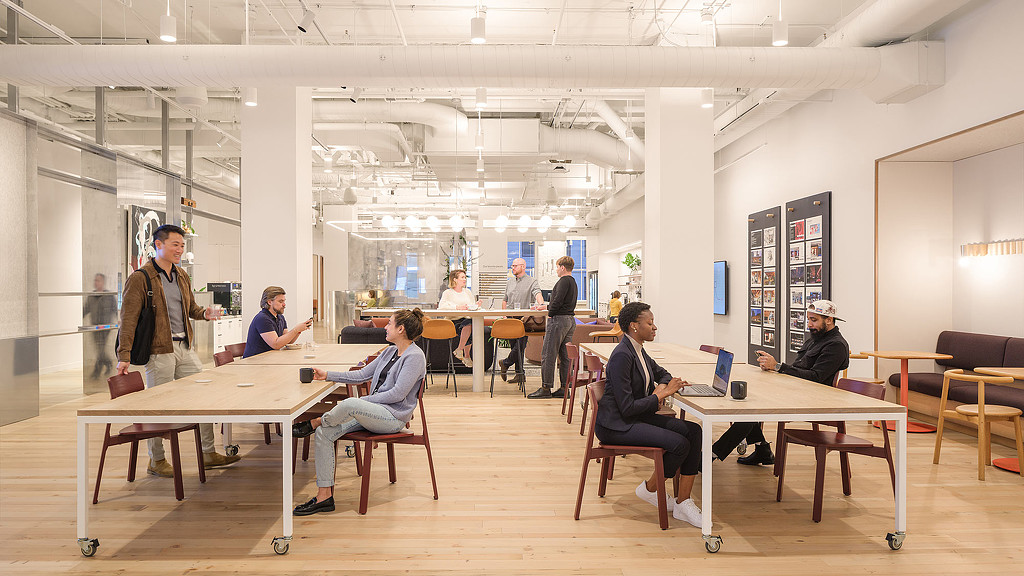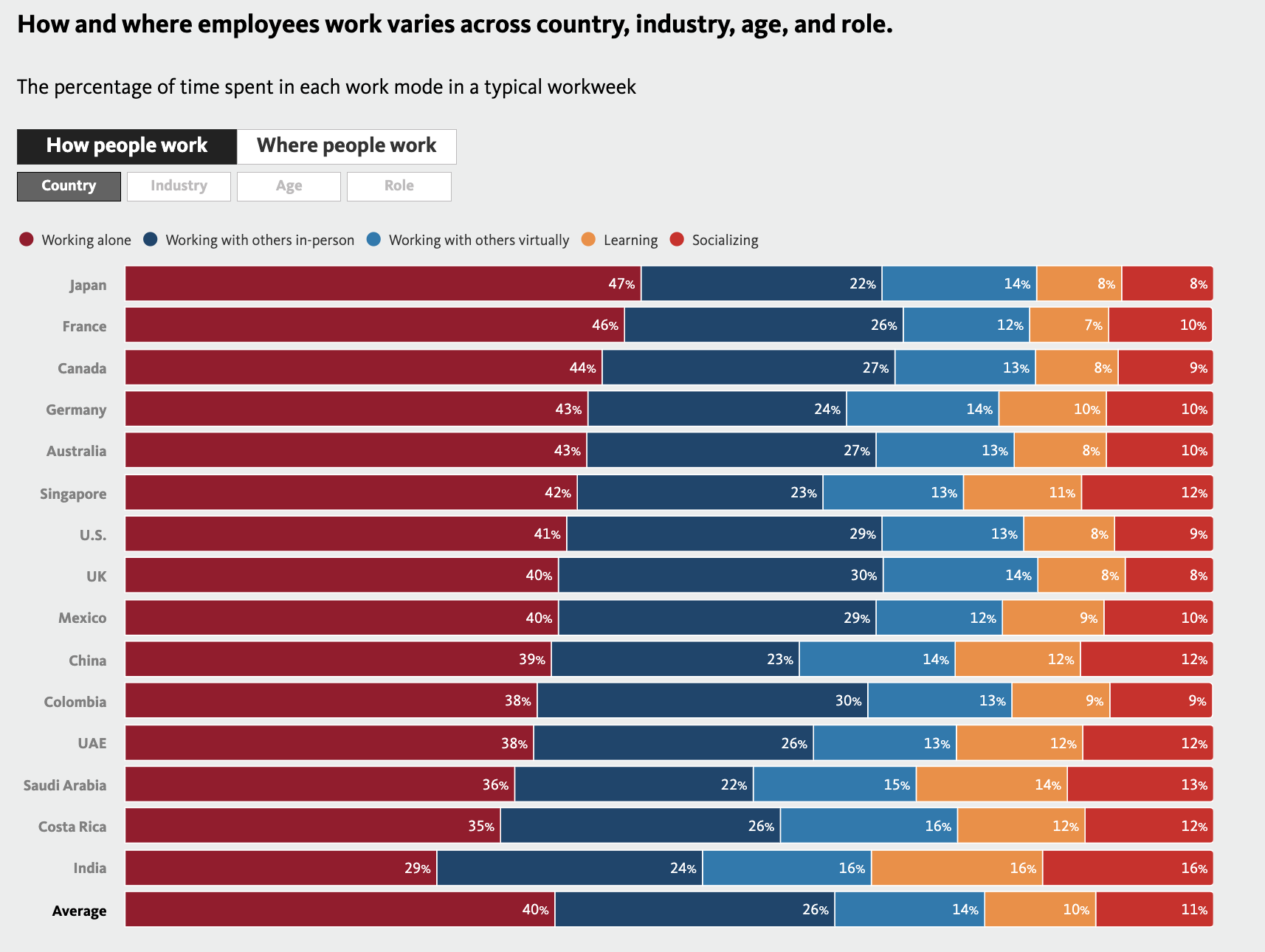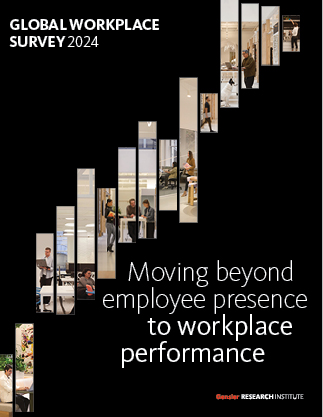Posted by Johann Nacario — June 28, 2024 — The Gensler Research Institute recently announced the findings from its Global Workplace Survey 2024, offering fresh insights into the future of work. The comprehensive global study shifts the focus from employee presence in the office to workplace performance. A high-performing workplace is no longer solely defined by building efficiency or space effectiveness, it is also measured by the workplace experience — or, how employees feel in the space.
According to the report, 94% of employees in exceptional workplaces have a choice in where they work within the office, granting them the autonomy to work across multiple settings and promoting a higher sense of value and engagement. For the first time, the new survey goes beyond office walls to reveal how exceptional workplaces perform as part of a broader ecosystem of spaces and experiences. These top-performing workplaces, often located in amenity-rich neighborhoods, are part of a wider environment that includes diverse spaces such as libraries, cafés, outdoor areas and coworking spaces.
With less than a third of global workplaces having been redesigned in the last three years, there’s a pressing need for organizations to intentionally rethink office spaces to boost company culture and drive business growth.
Janet Pogue McLaurin, global director of Workplace Research at Gensler, stated:
It’s time to redefine workplaces for the next evolution of work. Organizations and leaders need to shift their thinking beyond just returning to the office and instead focus on the opportunity to design high-performing spaces for people to work at their best. A great workplace must not only be a tool to get work done effectively but be intentionally designed for human emotion — creating exceptional experiences that support new ways of working both inside and out of the office.
Key findings and data
Top Performers Set the Standard for Workplace Value
-
The most engaged workers value the workplace for the learning, networking and socializing opportunities it offers — the most engaged spend just 36% of their time working alone, compared to 44% of time for the least engaged.
- At the individual level, the most engaged employees prioritize socializing and learning, while strong teams seek in-office connections, and innovative companies thrive on collaboration, both in-person and out of the office.
Exceptional workplaces offer an ecosystem of experiences beyond the office
- Building quality had a direct relationship to workplace quality. High-performance workplaces have access to 2.6x as many amenity spaces on-site and 1.6x as many amenities and services in the surrounding neighborhood.
- Higher-quality buildings are more likely to be in amenity-rich neighborhoods that enhance workplace performance and experience, underscoring the importance of strategic location and design.
Exceptional workplaces fuel top performance
- There is a direct, positive link between top performers at all scales and working in a high-performing workplace.
- 96% of employees in high-performing workplaces say they have control over how they manage their time at work, compared to just over half of those in low-performing workplaces.
- 99% of employees at the most innovative companies say that they would recommend their organization as a great place to work, compared to just 37% in the least innovative.
- 97% of the most engaged employees say they are likely to stay with their company next year, compared to just 53% of the least engaged.
The Gensler Research Institute conducted an anonymous, panel-based survey of over 16,000 full-time global office workers across 15 countries including U.S., Mexico, Canada, UK, Germany, United Arab Emirates, Saudi Arabia, Singapore, and the Philippines. Respondents were distributed across 10 client industries and represented a broad cross-section of company sizes, roles, ages and geographies. The survey was fielded between October 31, 2023, and January 29, 2024. Respondents excluded full-time remote workers.
Find more results of the Global Workplace Survey 2024 at Gensler Research Institute.







